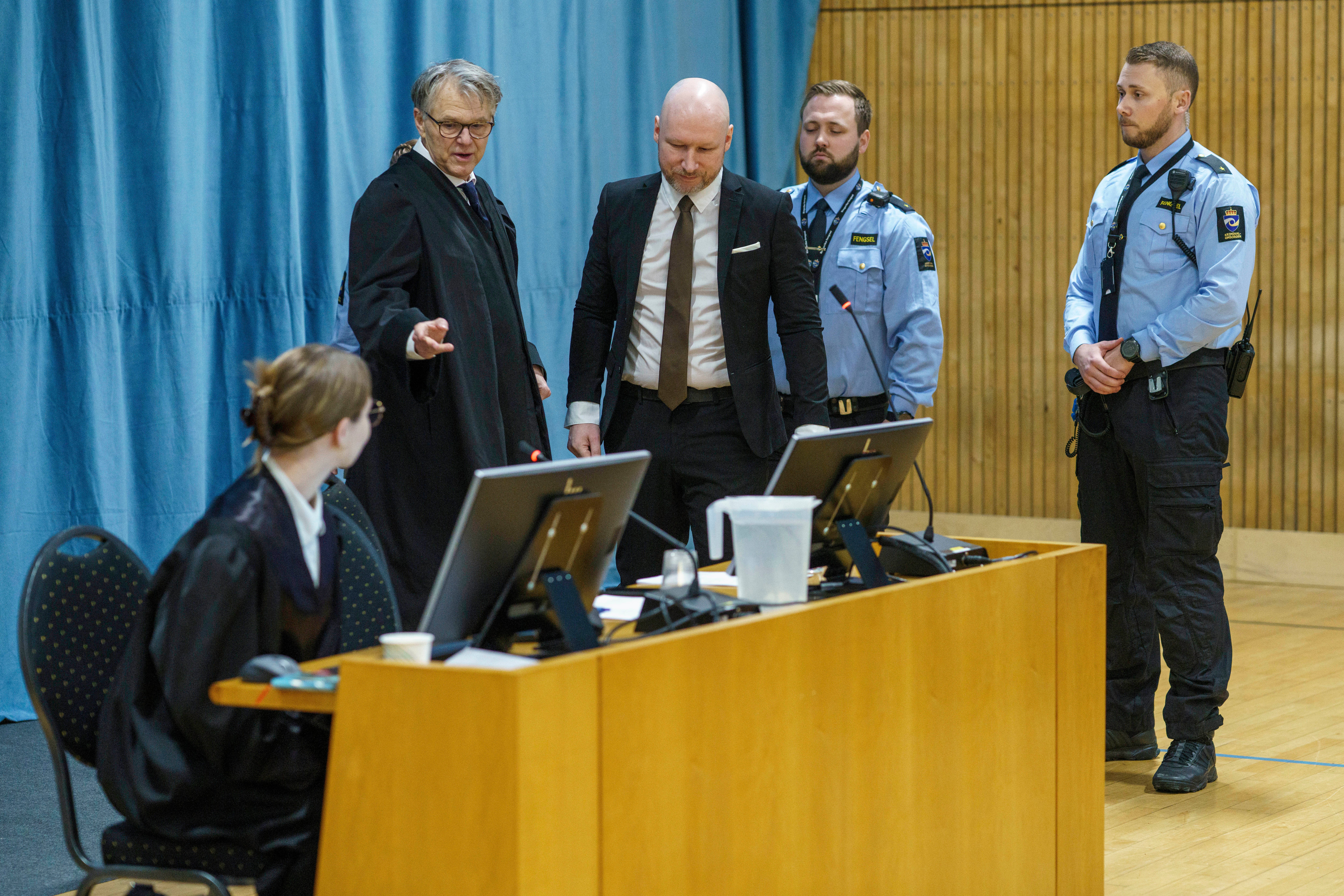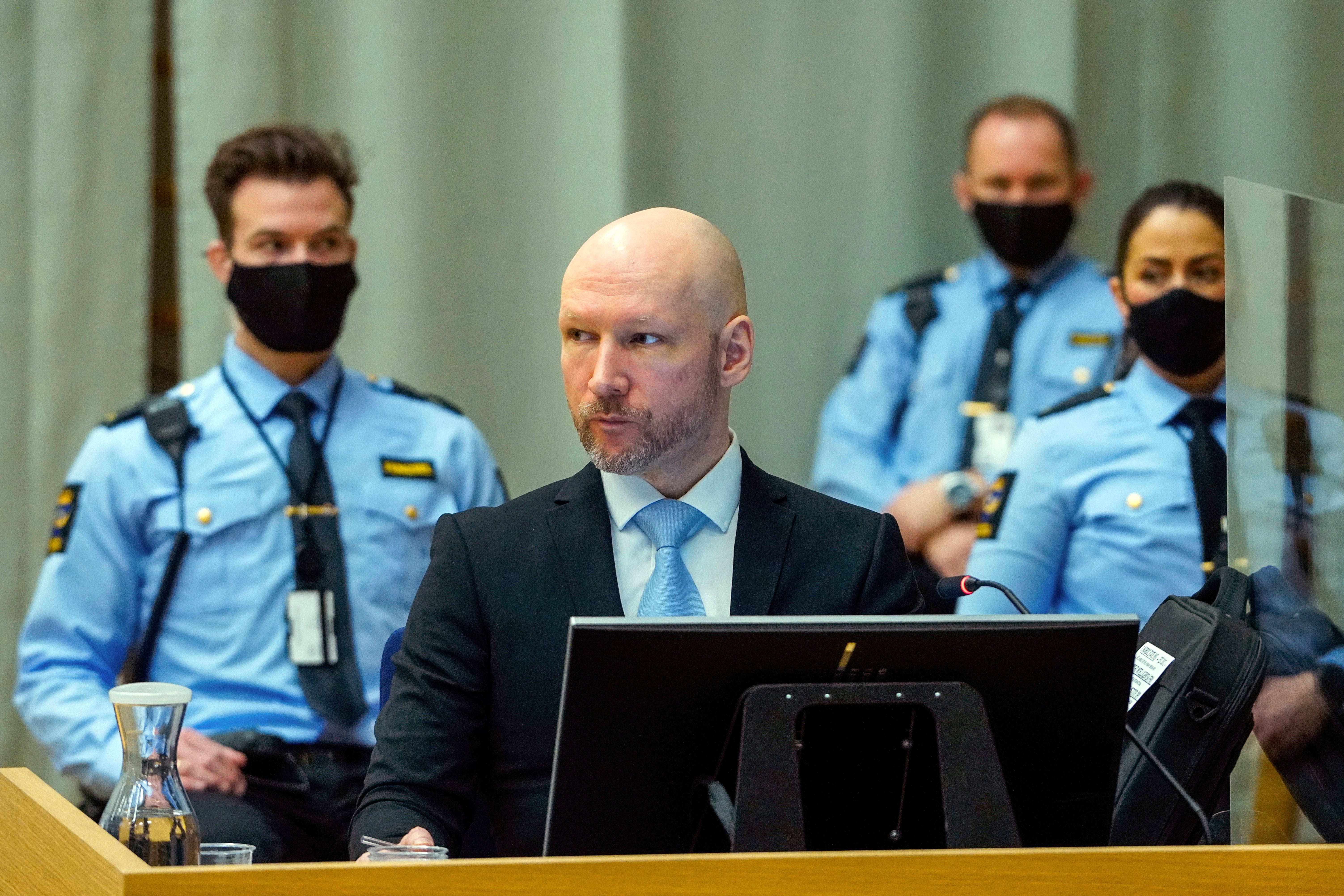Your support helps us to tell the story
From reproductive rights to climate change to Big Tech, The Independent is on the ground when the story is developing. Whether it's investigating the financials of Elon Musk's pro-Trump PAC or producing our latest documentary, 'The A Word', which shines a light on the American women fighting for reproductive rights, we know how important it is to parse out the facts from the messaging.
At such a critical moment in US history, we need reporters on the ground. Your donation allows us to keep sending journalists to speak to both sides of the story.
The Independent is trusted by Americans across the entire political spectrum. And unlike many other quality news outlets, we choose not to lock Americans out of our reporting and analysis with paywalls. We believe quality journalism should be available to everyone, paid for by those who can afford it.
Your support makes all the difference.Mass murderer Anders Behring Breivik has lost his case against the state in his bid to end his isolation in prison.
The far-right fanatic, who killed 77 people in a bombing and shooting rampage in 2011, sued the state in January arguing his prison conditions violated his human rights.
“The Oslo District Court has, after an overall assessment, concluded that Breivik’s sentencing conditions are not a violation of human rights,” it said in a statement accompanying the verdict.
Breivik is serving a 21-year sentence, the maximum penalty at the time of his crimes, which can be extended for as long as he is deemed a threat to society.
He has been held in isolation ever since he killed eight people with a car bomb in Oslo and gunned down 69 others, most of them teenagers, on Utoeya island, on July 22, 2011.

The case took place in January at Breivik’s high-security prison, set on the shore of the Tyrifjorden lake, where Utoeya also lies.
Breivik testified he was sorry for what he had done and broke down in tears as he said his life in prison isolation was a nightmare that left him considering suicide daily.
Yet, a day later, a psychologist who co-wrote a fresh risk assessment about the killer testified he was neither depressed nor suicidal and was doing “very well”.
“In summary, the court has come to the conclusion that the sentencing conditions cannot be said to be, or to have been, disproportionately burdensome,” said the verdict.
Breivik’s lawyer did not immediately respond to a request for comment.

Join our commenting forum
Join thought-provoking conversations, follow other Independent readers and see their replies
0Comments